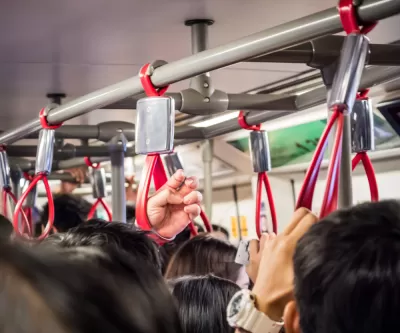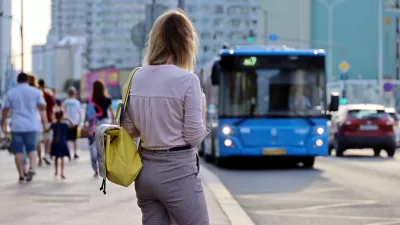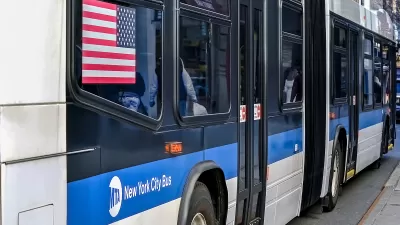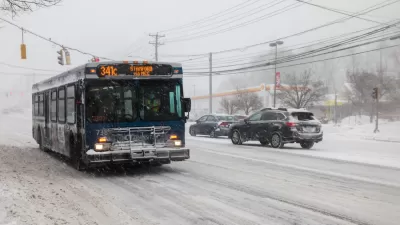Fare-free programs that apply to buses and not trains create a fragmented transit system and encourage more people to use slower, less efficient modes.

The idea of fare-free transit is nothing new, and has been gaining more traction in cities around the country in the last few years. However, Jarrett Walker, writing in Bloomberg CityLab, calls attention to what Walker believes could be a troubling trend: making fare free on buses, but not trains. “If that trend spreads, we should expect some bad consequences,” Walker writes.
As Walker explains, Washington, D.C. and Boston are both exploring free bus transit, but have kept fares on their train systems. According to Walker, “A certain kind of capitalist would say this is fine: The train is faster, so it should cost more. But when people use a slower service rather than a faster one, it’s not just bad for them. It’s also bad for the transit agency budget, which means it’s bad for everyone who uses transit or benefits from it.”
Buses, which are smaller, will reach capacity more quickly. “Trains, on the other hand, are much more likely to have surplus capacity, especially now that so many suburban commuters who used to pack them are working from home, so they could be serving many of the same people at lower cost.”
At the same time, the distinction between buses and rails also raises questions about who each mode serves. Additionally, many trips require combining both bus and train, and lower-income riders are more likely to have more dispersed travel patterns that are often better served by buses. For these and other reasons, Walker argues, the free fare debate should take place around the whole transit network. “An efficient and therefore liberating urban transit network encourages people to think about the total network, and to use buses or trains according to which is better for each part of their trip.”
FULL STORY: When Buses Are Free But Trains Aren’t

Alabama: Trump Terminates Settlements for Black Communities Harmed By Raw Sewage
Trump deemed the landmark civil rights agreement “illegal DEI and environmental justice policy.”

Study: Maui’s Plan to Convert Vacation Rentals to Long-Term Housing Could Cause Nearly $1 Billion Economic Loss
The plan would reduce visitor accommodation by 25% resulting in 1,900 jobs lost.

Planetizen Federal Action Tracker
A weekly monitor of how Trump’s orders and actions are impacting planners and planning in America.

Waymo Gets Permission to Map SF’s Market Street
If allowed to operate on the traffic-restricted street, Waymo’s autonomous taxis would have a leg up over ride-hailing competitors — and counter the city’s efforts to grow bike and pedestrian on the thoroughfare.

Parklet Symposium Highlights the Success of Shared Spaces
Parklets got a boost during the Covid-19 pandemic, when the concept was translated to outdoor dining programs that offered restaurants a lifeline during the shutdown.

Federal Homelessness Agency Places Entire Staff on Leave
The U.S. Interagency Council on Homelessness is the only federal agency dedicated to preventing and ending homelessness.
Urban Design for Planners 1: Software Tools
This six-course series explores essential urban design concepts using open source software and equips planners with the tools they need to participate fully in the urban design process.
Planning for Universal Design
Learn the tools for implementing Universal Design in planning regulations.
Caltrans
Smith Gee Studio
Institute for Housing and Urban Development Studies (IHS)
City of Grandview
Harvard GSD Executive Education
Toledo-Lucas County Plan Commissions
Salt Lake City
NYU Wagner Graduate School of Public Service





























